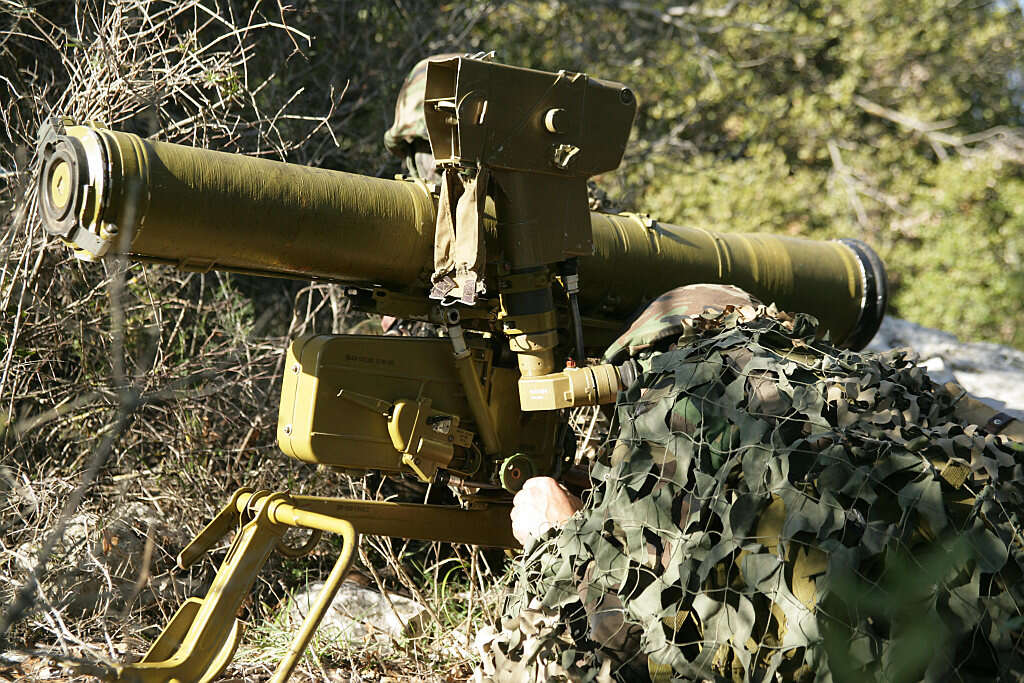The Israeli Defense Forces (IDF) have uncovered substantial stockpiles of sophisticated Russian weaponry in southern Lebanon, confirming long-held suspicions about Hezbollah acquiring advanced Russian armaments, according to reporting by The Wall Street Journal.
The weapons cache, which includes modern Kornet antitank missiles manufactured as recently as 2020, was transferred to southern Lebanon from Russian stockpiles in Syria in recent years, Syrian security officials and an Arab official told The Wall Street Journal. Russia has maintained extensive weapons supplies in Syria while providing arms to the Syrian military.
Israeli military leaders had previously identified some Russian-made weapons in Hezbollah's arsenal, but their limited access to southern Lebanon since the Second Lebanon War had prevented a full assessment of the terror group's capabilities. Earlier known Russian weapons in Hezbollah's possession were generally less advanced, many dating to the Soviet era.
The newly discovered weapons are more sophisticated and numerous than military analysts had anticipated, significantly enhancing Hezbollah's combat capabilities following Israeli airstrikes against its leadership. Anti-tank weapons, particularly the Kornet system, have proven especially lethal, resulting in multiple Israeli military casualties.

"Israel needs to be more assertive and defend its interests," Arkady Mil-Man, a former Israeli ambassador to Russia who now serves as a senior researcher at the Institute for National Security Studies in Tel Aviv, said. "We must explain and convey to the Russians that we will no longer stand any assistance to Hezbollah and Iran that could hurt Israelis."
The Russian government and the Syrian foreign ministry did not respond to requests for comment, while the Israeli prime minister's office declined to comment.
Israeli Foreign Minister Gideon Sa'ar emphasized Russia's influence over the terror group, expressing hope for Moscow's assistance in enforcing any agreement to disarm Hezbollah by preventing weapons transfers from Syria to Lebanon.
"The principle that Hezbollah won't be able to arm again or get new weapons systems or take them into Lebanon and to renew the threat to the extent it was before the war is vital to the success of any arrangement in Lebanon," he said.
Israel has historically sought positive relations with Russia, partly to avoid conflicts in Syria, where Russia maintains a military presence and Israel conducts operations targeting weapons flows to Hezbollah.
Since Russia's invasion of Ukraine in 2022, Moscow's regional stance has shifted toward more actively challenging the US and its allies, analysts say. The Wall Street Journal has reported that Russia provided targeting data to Yemen's Houthi rebels during their attacks on Western vessels in the Red Sea earlier this year. US officials have indicated Russia is considering supplying anti-ship missiles to the Houthis.
The route through Syria
Russia's involvement in Syria intensified after the 2011 civil war outbreak, with Russian forces intervening to support President Bashar al-Assad. By 2015, Russians were fighting alongside Hezbollah forces in Syria, fostering closer ties that facilitated Hezbollah's access to Russian weapons stockpiles, particularly anti-tank, anti-aircraft, and anti-ship missiles, according to Syrian security officials and the Arab official who spoke to The Wall Street Journal.
At Israel's National Munition Disassembly Lab, where seized materials from southern Lebanon undergo examination, an Israeli major who heads the facility reported that 60% to 70% of weapons captured in the initial phase of Israel's campaign were Russian-made. These included various Russian-guided anti-tank missile systems such as Metis, Konkurs, Fagots, and Saggers, found within just over half a mile of the Lebanese border both above and below ground in Hezbollah bunkers.
Markings on some weapons appeared to confirm their route from Russia through Syria to Hezbollah. One rocket case discovered in southern Lebanon bore Russian-language labeling indicating shipment from Russia to Syria's Ministry of Defense, though not all weapons carried such identifying marks.
The IDF has reported 43 soldiers killed in Lebanon since launching its ground offensive against Hezbollah. The availability of reliable, short-range missiles such as the Kornet has been crucial to Hezbollah, enabling a more effective campaign against Israel than Hamas, which has only had access to less-reliable Iranian copies, according to experts interviewed by The Wall Street Journal.




